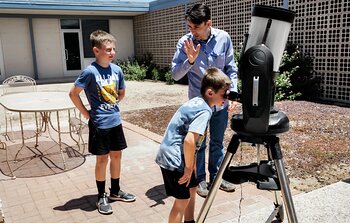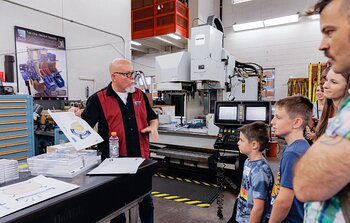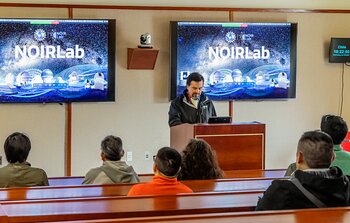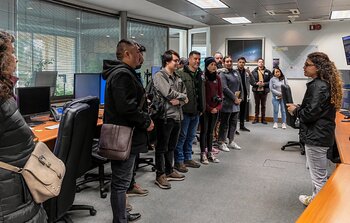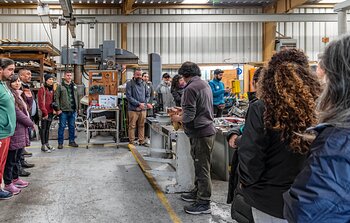NSF NOIRLab Public Visits Restart in Arizona, Hawai‘i, and Chile in July 2023
June 23, 2023
NSF-funded world-class observatory opens its doors and welcomes the public for new exciting discoveries in astronomy
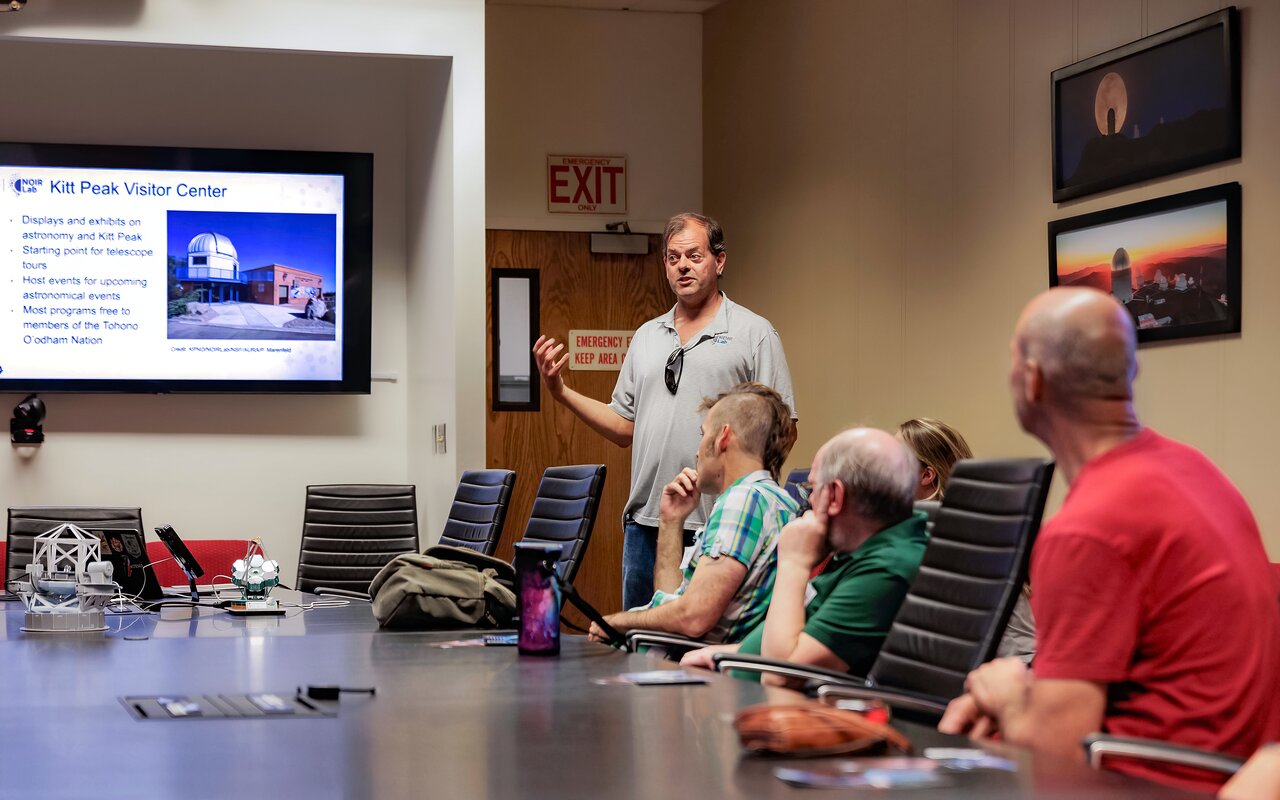
NSF NOIRLab is excited to announce that public visits will soon restart at our observatories and base facilities in Arizona, Hawai‘i, and Chile. Complete with a new website, revamped guided tours, and even a virtual tours system, probing the secrets of the night sky is now only one click away.
Exploring the Universe starts on the ground, with many of our astronomers operating world-class observatories. However, scientists are not the only ones privy to the fruitful discoveries that the cosmos has to offer. With plans to reopen various facilities around the world, NOIRLab is committed to providing the unique experience of being at the forefront of astronomy research. From observing the mechanics of our specially-designed telescopes to learning about the discoveries made with cutting-edge technology, our mission is to educate the general public by bringing these cosmic adventures down to Earth.
Our newly launched web page hosts a plethora of information that can help get you started on your next journey, including activities and reservations, maps of the various sites, information on each telescope and their instruments, and a link to the virtual tours. Choose from three different locations, each with a variety of facilities to pick from.
Visits in Chile involve guided daytime tours at Cerro Tololo Inter-American Observatory (CTIO), Cerro Pachón, and the AURA Recinto in La Serena. Whether you explore the beautiful views on the rugged peaks of CTIO and Cerro Pachón, or the base facility at the AURA Recinto across from the University of La Serena that welcomes visitors and school groups alike, Chile offers everyone a chance to experience science first-hand. CTIO will be restarting tours on Saturday 1 July 2023, and Cerro Pachón on Friday 7 July 2023; the AURA Recinto restarted tours on Wednesday 7 June 2023. The tours to the Chile telescope sites will involve a free transfer by bus from the Observatory Access Gate to the telescope sites for all visitors with a confirmed reservation. More details can be found on our public visits web page.
Visits in Hawai‘i include guided daytime tours at the Gemini North telescope on Maunakea, as well as the Gemini North Base Facility in Hilo. The crystal-clear skies in Hawai‘i make it a popular spot for astronomy research, and visitors are welcome to embark on a journey to tour one half of the International Gemini Observatory. Gemini North has the special capability that it can be operated entirely remotely from the Gemini North Base Facility, which is open to the general public for guided tours as well. Gemini North will be restarting summit tours on Thursday 6 July 2023, and the Gemini North Base Facility restarted tours on Friday 2 June 2023.
Visits in Arizona feature special tours of NOIRLab Headquarters in Tucson near the University of Arizona campus. As the center of main operations, many of NOIRLab’s scientists and technology are located here. Visitors will have the opportunity to tour through the offices, around the courtyard and library, and into the machine shop. Tours of Headquarters restarted on Friday 2 June 2023.
Kitt Peak National Observatory (KPNO) and the Visitor Center, on the other hand, will unfortunately continue to remain closed to the public because of the effects of the Contreras Fire. The Arizona Department of Transportation is still working on repairs to the public road up the mountain, and we have high hopes that public visits can resume in the near future when the road is deemed safe to travel. In the meantime, we are gradually reopening the exclusive Overnight Telescope Observing Program. Through this custom program, visitors can enjoy the full observatory experience of a visiting astronomer by using one of our telescopes overnight, and allows up to four guests at Kitt Peak.
We understand that touring our sites requires much time and energy, which is why NOIRLab is also proud to be promoting our comprehensive virtual tours! From the comfort of your own home, explore all of our observatories and facilities with remarkable 360-degree panoramic views. PC and Mac, iOS and Android phones, and virtual reality headsets are all supported.
More information
NSF NOIRLab (National Optical-Infrared Astronomy Research Laboratory), the US center for ground-based optical-infrared astronomy, operates the International Gemini Observatory (a facility of NSF, NRC–Canada, ANID–Chile, MCTIC–Brazil, MINCyT–Argentina, and KASI–Republic of Korea), Kitt Peak National Observatory (KPNO), Cerro Tololo Inter-American Observatory (CTIO), the Community Science and Data Center (CSDC), and Vera C. Rubin Observatory (operated in cooperation with the Department of Energy’s SLAC National Accelerator Laboratory). It is managed by the Association of Universities for Research in Astronomy (AURA) under a cooperative agreement with NSF and is headquartered in Tucson, Arizona. The astronomical community is honored to have the opportunity to conduct astronomical research on Iolkam Du’ag (Kitt Peak) in Arizona, on Maunakea in Hawai‘i, and on Cerro Tololo and Cerro Pachón in Chile. We recognize and acknowledge the very significant cultural role and reverence that these sites have to the Tohono O’odham Nation, to the Native Hawaiian community, and to the local communities in Chile, respectively.
Links
Contacts
Charles Blue
Public Information Officer
NSF NOIRLab
T: +1 202 236 6324
Email: charles.blue@noirlab.edu

